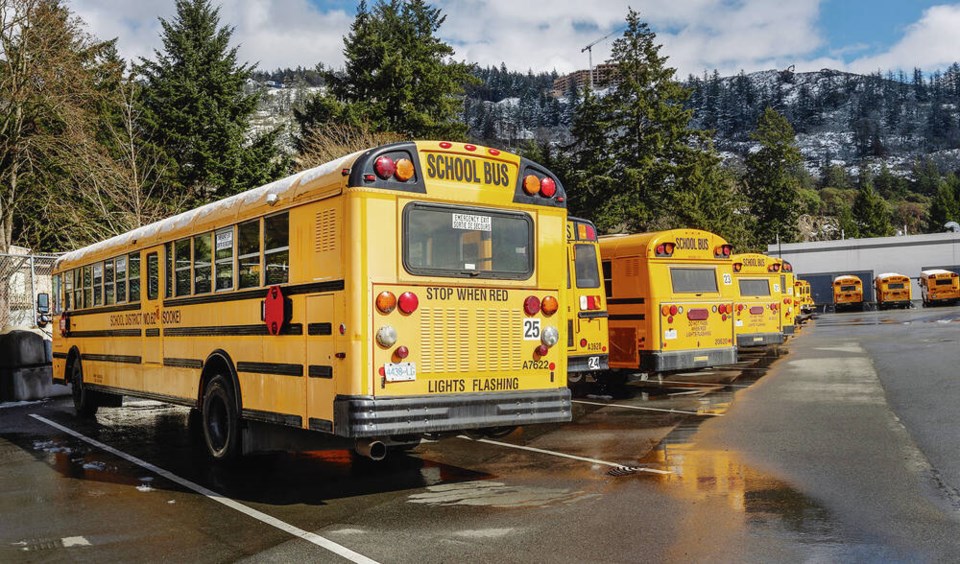The financial squeeze caused by rapid growth and inflation has the Sooke School Board looking at once again charging a fee for school-bus travel.
The Sooke School District’s bus system currently costs close to $4 million a year, while the student population has climbed to 13,700 and is expected to reach more than 16,000 by 2030 — making the district one of the fastest-growing in B.C.
About 4,100 students are registered for bus travel, but their families currently pay only a $25 annual “safety fee” to use the service, which helps with such costs as a pilot project for tracking students and buses through the use of swipe cards.
Bus user fees were last charged in 2016 at $225 per rider per year.
School board chair Amanda Dowhy said the district stopped charging for the bus when the province created the Student Transportation Fund in 2017 to help districts reduce or eliminate ridership fees.
She said the Sooke district received $358,000 a year from the fund, a total that hasn’t changed in the years since.
The district had about 9,200 students in the 2016-17 school year.
The district said in a statement that transportation costs are rising at “an unsustainable rate,” noting that the B.C. School Act does not require districts to provide bus transportation, “and therefore it is the responsibility of each family to determine the best transportation option to and from school to meet their needs.”
The two other capital region school districts with bus service, Saanich and the Gulf Islands, don’t currently charge a fee but several districts around the province do.
The Sooke School District board voted at a meeting last week to explore a fee-based bus system. The topic is on the agenda for a resources committee meeting at 6 p.m. Wednesday at the board offices, 3143 Jacklin Rd.
The public will have a chance to weigh in.
Melissa Da Silva, acting president of the Sooke Parents’ Education Advisory Council, said her group is eager to find out what the cost of riding the bus might be, “and how that might affect families.”
“Busing is one of those things that is very needed in the West Shore,” said Da Silva, whose daughter rides a school bus.
Some students have to attend classes outside their catchment areas because the schools they would normally attend are full, she said. “So they need ways to get there.”
Dowhy said the district has a unique combination of rural and urban areas that makes buses important for many people. “And we see our communities expanding outward, and that increases the number of students farther away from our schools.”
Da Silva said she has heard from some parents that buses can be crowded, and they would be willing to pay if it resulted in better service “and a more guaranteed way to get their kids to school on time.”
She said bus registration for the 2024-25 school year began Monday and was very busy, “so there’s obviously huge demand.”
>>> To comment on this article, write a letter to the editor: [email protected]



